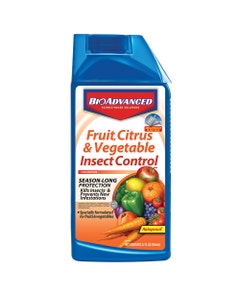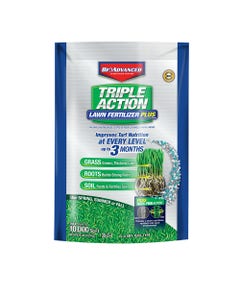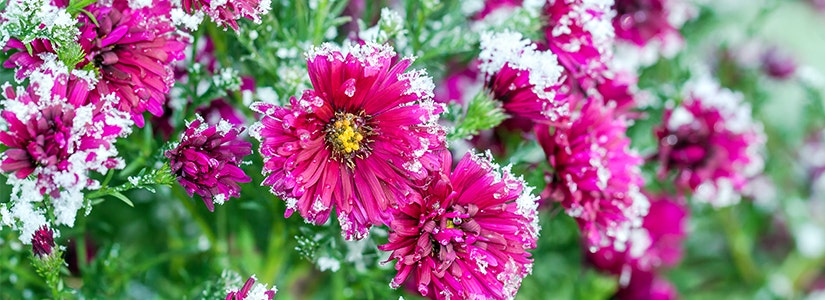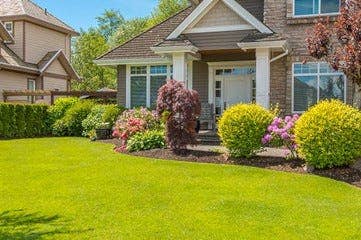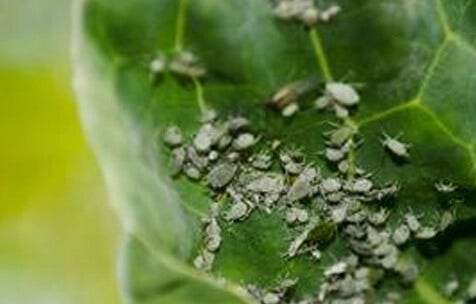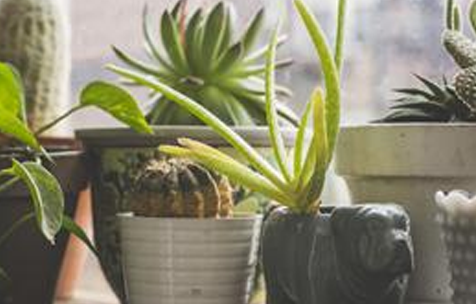

- Home
- Solution Center
- Learn
- Lawn and Landscape
- Composting: Recycling In The Garden
Composting: Recycling In The Garden
Compost just happens – it's a natural phenomenon. If you pile leaves and twigs in a corner of your yard, eventually you'll discover they have turned into a dark, fluffy, crumbly material: compost. While you can allow compost to happen, you can also help speed things along if you understand the process.
Compost is the byproduct of decomposing organic matter, such as autumn leaves, eggshells, grass clippings and coffee grounds. The workers that break down organic matter include microorganisms, fungi, and soil fauna (Earthworms, Millipedes, Ants, etc.). You'll create compost most efficiently when you design an environment that provides ideal conditions for these organisms. Normally, decomposition takes a few months to several years. But if you create optimum conditions for the decomposers, you'll get compost more quickly, maybe in as little as 14 days.
The best part of compost is that it's nearly free for the making and less time-consuming than growing a tomato. In a few hours, you can easily assemble a no-frills compost pile and be on your way to harvesting homegrown compost.
Benefits Of Compost
Compost does nothing but good in a garden. Called "black gold" by many gardeners, compost is an ideal soil amendment because it enhances soil structure, improves plant health and defeats weeds.
Fertility. Compost infuses soil with a broad spectrum of nutrients, including enzymes and minerals, in a form that's easily taken up by plant roots. Compost releases these nutrients slowly, over time, creating a goof-proof fertilizer that won't burn plants. You can't over-apply compost. If you do add fertilizer to soil, microorganisms present in compost help plants absorb those nutrients.
Soil Structure. Compost improves soil structure, regardless of soil type. Clay soils loosen, sandy soils hold water, and well-balanced soils become even richer. Compost reduces soil compaction and surface crusting, which can enhance drainage. Why is compost such a wonderful amendment? It's 100 percent organic matter, which increases soil's ability to hold water and enhances its texture.
Beneficials. Compost increases the number and activity level of beneficial soil creatures, including microorganisms such as fungi, algae and Nematodes, as well as visible critters such as Earthworms, Ants and Millipedes. Soil fauna is what breaks down organic matter and converts nutrients into forms plant roots can easily absorb. When soil fauna is healthy and active, like it is in compost, the organisms can also help suppress certain diseases that attack plants.
Weed Control. Compost can be used as a mulch to help suppress weeds, while providing vital nutrients to plants as it decomposes.
Beyond the garden. Compost benefits the environment by reducing the amount of yard waste entering local landfills. And if your city requires payment to pick up yard waste, creating a compost pile eliminates that fee. Using compost in planting beds also reduces the amount of money you'll spend on water and fertilizer.
Start With The Right Ingredients
To produce compost, decomposers need four things: carbon, nitrogen, water and oxygen. Offer these ingredients in a balanced way, and you'll get a quick turnaround from raw materials to finished compost.
Carbon. Materials rich in carbon (called "browns") equate to energy food for decomposers. High-carbon materials are typically brown or tan, tough, and dry. Examples include corncobs, cornstalks, dry leaves, straw and shredded newspaper.
Nitrogen. High-nitrogen materials (called "greens") provide protein for decomposers. Many nitrogen-rich items are green and moist, such as spent annuals, grass clippings and garden prunings. Kitchen scraps fall into this category, including non-green things like coffee grounds and eggshells. Although manures or meals (blood meal, kelp meal, etc.) aren't green or moist, they're also excellent sources of nitrogen.
Water. Like other living things, decomposers need moisture to survive. How much water is enough? The rule of thumb is to keep your compost pile as moist as a well-wrung sponge. You can water a compost pile if it dries out. Covering a pile with a tarp or using an enclosed container can help regulate moisture.
Oxygen. Your army of decomposing organisms also needs oxygen to function best. As materials start to decompose in your pile, air pockets disappear. It's vital to incorporate some method to introduce oxygen into your pile. Turning the pile accomplishes this, as do air vents on manufactured compost bins. For homemade compost systems, consider building the pile off the ground – on a pallet or layer of branches. You can also insert one or two pieces of 4-inch perforated plastic pipe into the center of the pile; shaking the pipe vigorously every other week increases airflow into the compost.
When you have the right ingredients present in the right proportions, decomposition occurs speedily. The decomposition process generates heat, which is vital for destroying weed seeds, plant pathogens, and disease organisms. Turning the pile helps ensure that adequate heat is maintained to produce problem-free compost.
Follow A Recipe — Or Not!
The ideal ratio of brown (carbon-rich) to green (nitrogen-rich) materials in a compost pile is 25:1. Compost piles with too much brown and not enough green take years to decompose. Too much green and not enough brown produces a smelly, wet pile.
Achieving a perfect 25:1 ratio isn't necessary for composting to occur. Remember, it's a natural process.
Try this approach:
- Layer materials to form a pile, aiming for three to four times as much brown as green. For the fastest composting – called "hot composting" – layer green and brown materials in a 1:1 ratio.
- Build layers that are 3-4 inches thick.
- Sprinkle a half shovelful of finished compost or topsoil (both contain decomposers) between layers.
- Water every other layer.
Here are some tips to help you get started.
Composting Myths
Compost stinks. Actually, when done properly, the only odor compost offers is an earthy, damp-soil aroma. If your compost pile smells, you're doing something wrong.
Compost is demanding. While there's no free lunch, creating compost comes pretty close. The most time-consuming part of composting is researching how to tackle it. Depending on your pile size, moving finished compost from bin to planting beds can also prove to be challenging, requiring both time and muscle. Beyond that, adding materials and a once- or twice-yearly pile turning doesn't claim loads of time or effort.
Compost requires space. You really don't need acres to generate ample compost. Small compost bins and tumblers offer ideal solutions for small yards. Even apartment or condo dwellers can produce compost using worm composters or automatic indoor compost bins.

